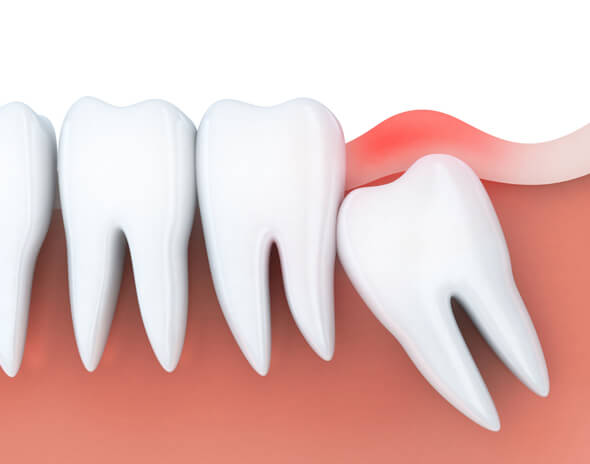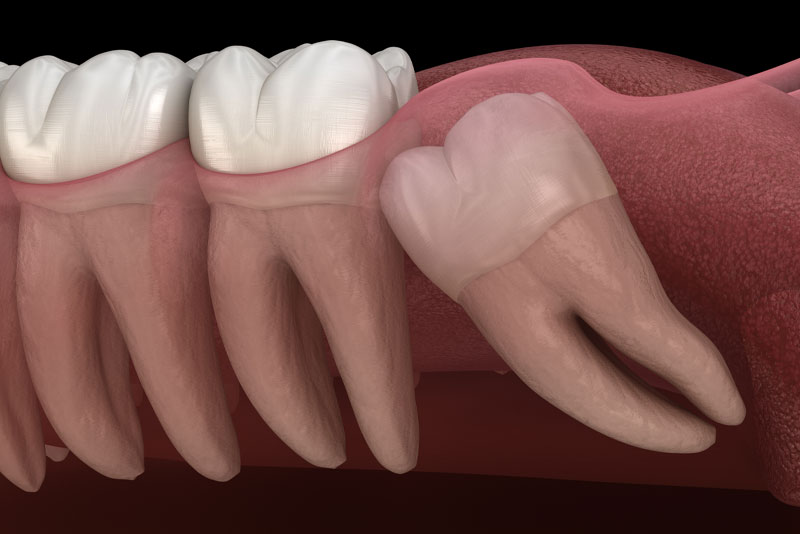Dental Professionals
Dental Professionals
Blog Article
Exploring Different Sedation Options for a Comfy Knowledge Teeth Removal Experience

Local Anesthetic
Regional anesthetic is a typically used technique for numbing details areas of the mouth throughout knowledge teeth extraction procedures. By carrying out an anesthetic, such as lidocaine, a dental practitioner can make certain that the patient continues to be pain-free and comfortable throughout the extraction process. Local anesthesia works by temporarily blocking the nerves in the mouth, avoiding them from sending out pain signals to the brain. This allows the dental professional to do the removal without creating any discomfort to the client.
One of the primary benefits of regional anesthesia is its targeted numbing effect, which means that only the specific location being treated is influenced. This localized strategy lessens the danger of systemic side effects and permits for a quicker healing post-procedure. wisdom teeth removal aspendale. In addition, regional anesthesia is thought about to be a risk-free and routine practice in dental care, with marginal risks entailed when provided by a qualified professional
Laughing Gas

Furthermore, nitrous oxide is understood for its quick healing time. Once the mask is removed, the impacts of the gas disappear swiftly, permitting patients to resume their typical activities without remaining sedative effects. This makes laughing gas a hassle-free choice for those who need to drive themselves home after the oral visit. Nitrous oxide is appropriate for patients of all ages, making it a functional sedation choice for wisdom teeth removals and other oral procedures.
Oral Sedation

One of the primary advantages of dental sedation is its convenience of management. Unlike intravenous sedation, oral sedation does not require shots or needles, making it an extra comfortable option for individuals with an anxiety of needles. Furthermore, dental sedation is taken into consideration efficient and safe when administered by qualified oral specialists. It is critical for clients to follow pre-operative directions provided by their dental expert, such as refraining from eating or consuming alcohol prior to the treatment to guarantee the sedative medicine functions as intended.
IV Sedation
Carried out intravenously by trained physician, IV sedation is an effective approach used to cause a regulated state of deep leisure and unconsciousness throughout oral treatments. Unlike oral sedation, which can be unpredictable in its impacts, IV sedation permits accurate control over the degree of sedation, making it an ideal option for complex treatments like knowledge teeth extractions.
Throughout IV sedation, a sedative medicine is supplied directly right into the blood stream via a capillary, enabling it to take result rapidly and effectively. This approach guarantees that the client remains unaware and comfortable of the procedure while useful content still maintaining vital features such as breathing and heart rate.
Among the key benefits of IV sedation is its capacity to supply a deeper degree of sedation contrasted to other techniques, making it specifically suitable for individuals with high levels of anxiety or those undertaking considerable oral work. In addition, the impacts of IV sedation generally disappear slowly after the procedure, minimizing the chance of grogginess or lingering side effects. Overall, IV sedation supplies a efficient and risk-free option for making certain a comfortable and worry-free experience throughout wisdom teeth removal.
General Anesthetic
Having actually gone over the benefits of IV sedation for wisdom teeth removal, the application of general anesthetic offers a different choice for patients needing a deeper degree of unconsciousness throughout dental treatments. General anesthetic causes a controlled state of unfamiliarity, guaranteeing the person really feels no discomfort or discomfort throughout the removal process. This address approach is especially advantageous for people with severe oral stress and anxiety, complex medical needs, or those undergoing multiple removals concurrently.
General anesthesia is provided by an experienced anesthesiologist that carefully checks the client's important signs throughout the procedure. It involves the use of intravenous drugs or inhaled gases to induce a state of unfamiliarity. While under basic anesthesia, the person will not understand the surgical procedure, experience any discomfort, or have any type of recollection of the treatment later.
Although general anesthesia is risk-free when carried out by qualified experts, it lugs a somewhat higher risk contrasted to various other sedation alternatives. wisdom teeth removal aspendale. Patients considering general anesthetic for wisdom teeth extraction must discuss the potential risks and benefits with their dental practitioner or dental surgeon to make a notified decision based on their private requirements and case history
Verdict
In verdict, go right here various sedation options are offered to make sure a comfy wisdom teeth extraction experience. Dental sedation and IV sedation deal deeper degrees of leisure, depending on the individual's requirements.
Nitrous oxide is appropriate for clients of all ages, making it a versatile sedation alternative for wisdom teeth extractions and various other oral procedures.
Unlike intravenous sedation, dental sedation does not need needles or injections, making it a much more comfortable alternative for people with a worry of needles.One of the primary advantages of IV sedation is its ability to provide a much deeper level of sedation contrasted to other methods, making it specifically appropriate for patients with high degrees of anxiety or those undertaking substantial dental job.Having actually talked about the advantages of IV sedation for knowledge teeth extraction, the use of basic anesthetic provides an alternate choice for individuals requiring a deeper degree of unconsciousness throughout oral procedures. Dental sedation and IV sedation offer much deeper degrees of relaxation, depending on the patient's requirements.
Report this page